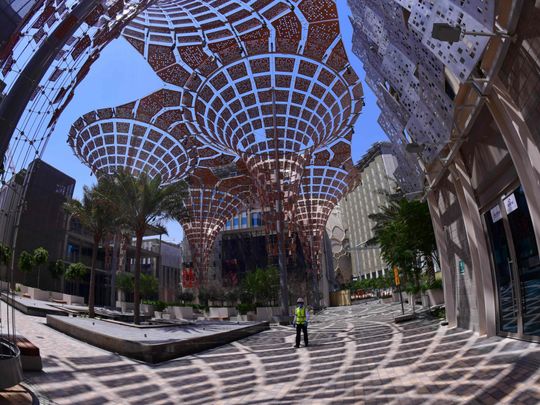
Dubai: A total of 23 social innovation projects from around the world were selected for Cycle Five of the Expo Live Innovation Impact Grant Programme (IIGP), organisers announced on Wednesday.
Some of these include an Australian organisation providing work opportunities for refugees; a dementia breakthrough project from Malta; and an environmentally-sustainable packaging from India.
Cycle Five grantees were selected from a pool of more than 4,000 applicants from 170 countries. The Expo Live programme began in 2016, and has since expanded from 29 Global Innovators in 22 countries to 142 grantees across 76 countries. Each grantee was offered funding up to $100,000 (Dh367,800) plus expert advice and opportunity to share their ideas on a global scale.
Collaborative solutions
“Some of the challenges, including rising levels of unemployment, inequality and poor access to quality health care, have been exacerbated by the current global health crisis, demonstrating a greater need than ever for collaborative solutions to address them,” said Yousuf Luiz Caires, senior vice-president of Expo Live.
“Through Expo Live, Expo 2020 is demonstrating its commitment to driving solutions that will positively affect global communities and future generations, supporting social impact start-ups across the world,” he added.
The first World Expo to be held in the Middle East, Africa and South Asia (Measa) region, will run from October 1, 2021, to March 31, 2022, and bring together some of the brightest minds and greatest ideas from around the world.
Caires also noted: “All projects supported by Expo Live so far — from improving access to mental health platforms in Egypt, Saudi Arabia or the United Kingdom, to innovative recycling technology in China — remain committed to improving people’s lives during the global health crisis.”
Making a difference globally
One of this year’s grantees is Australia-based Talent Beyond Boundaries (TBB), which is engaged in helping refugees and displaced people move internationally for work. TBB is engaging the private sector and various governments to provide a safe, legal migration option for refugees while also offering a solution to industries and communities who struggle to find the talent they need.
Another grantee is Malta-based BrainTrip. It was created by a team with diverse backgrounds in cognitive science, neuroscience and medicine. BrainTrip offers an affordable, easy-to-use and mobile EEG-based (electroencephalogram) method to diagnose dementia. This proved as a major breakthrough in rapid screening and early detection of the debilitating disease.
Screened and diagnosed
There is also GICMED, whose innovative tele-medicine platform and smartphone digital microscopy system allows women in rural areas of Cameroon to be screened and diagnosed for breast and cervical cancers.
Innovation led by women
Organisers noted that more than half the Global Innovators in Cycle Five are led by women. To date, 35 per cent of all Global Innovators — 49 out of 142 in the IIGP — are led by female entrepreneurs.
Significant environmental problems
One of them is India-based Ecoware, which has a range of over 30 compostable, 100 per cent natural and biodegradable packaging products. The solution addresses two significant environmental problems in India — air and plastic pollution.
Rhea Mazumdar Singhal, founder and CEO of Ecoware, said: “With Expo Live funds we will be able to source new types of agricultural waste for conversion into applications that will displace single-use plastics, take our products to smaller towns and cities, and expand our impact.
“By facilitating waste conversion, we help prevent the emission of greenhouse gases due to stubble burning, while creating jobs and opportunities for underprivileged communities in the process,” she added.
Another woman-lead project is Amal Work, a Palestine-based start-up that empowers construction workers through its online platform.
Rowan Alawi, co-founder of Amal Work, said: “Our relationship with Expo 2020 stretches back to July 2019. Our app continues to change the lives of construction workers across Palestine.”




